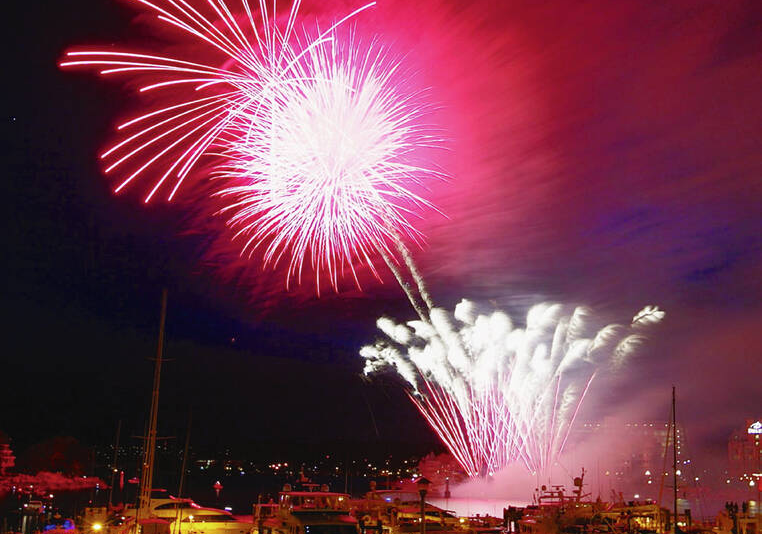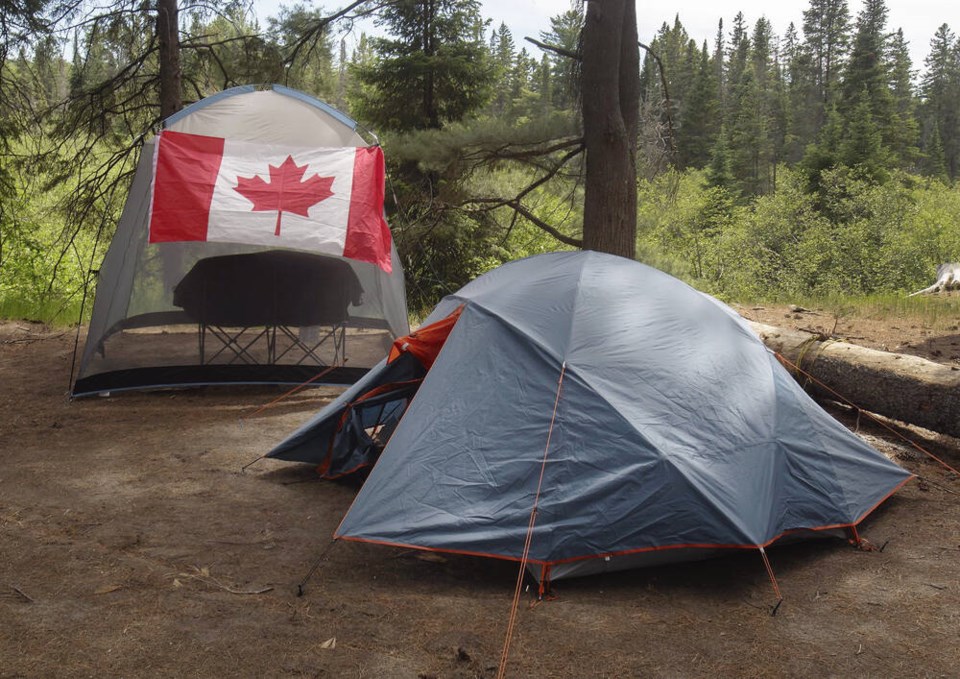In honour of Canada Day, here is a short quiz to help get you in the mood for waving flags, watching parades and enjoying fireworks at Monday’s celebrations throughout the region. Find the answers below.
The quiz
1. The maple leaf flag became Canada’s official flag in February 1965. Since about when has the maple leaf been used informally as a Canadian symbol?
2. How many more years after the maple leaf flag became official did it take for the maple to be designated as Canada’s national tree?
3. Name two of the maple tree species that are native to British Columbia.
4. What is the rodent species that is named for Canada? Bonus: When and why was this critter chosen as an official symbol of Canadian sovereignty?
5. What is the other official national animal of Canada?
6. When did the beaver and the maple leaf first appear on Canadian coins?
7. When was the first made-in-Canada official Canadian coin minted?
8. What animals that appear on Canada’s coat of arms are native to Canada?
9. What part of what animal species that makes its home within what Canadian waters may have contributed to the creation of one of the beasts on Canada’s coat of arms?
10. What founding nations are recognized on Canada’s coat of arms?
11. What is Canada’s official bird?
12. What is Canada’s national flower?
13. When did the last British forces to occupy Canada leave? Where had the garrison been based?
14. When do Victoria’s fireworks begin on Monday?
The answers

The answers
1. The first records of the maple leaf being used to symbolize Canada date from the early 19th century.
2. Parliament proclaimed the maple tree as Canada’s national arboreal emblem in May 1996, 31 years after the flag became official.
3. If you answered any of bigleaf maple (Acer macrophyllum), vine maple (Acer circinatum), Douglas maple (Acer glabrum) and mountain maple (Acer spicatum), you’re doing well. All four species are native to B.C.
4. The scientific name of the North American beaver is Castor canadensis. Bonus: The beaver became an official symbol of Canada on March 24, 1975. According to a Government of Canada website, the main reason the beaver was named an official Canadian symbol is because of the central role the animal played in the fur trade from the 17th to 19th centuries, which opened up the North American territories now known as Canada to European exploration and colonization.
5. The Canadian horse.
6. The beaver first appeared on Canada’s nickel and the maple leaf first appeared on the penny in 1937.
7. The first domestically produced official Canadian coins were struck Jan. 2, 1908, in Ottawa.
8. The animals on the Coat of Arms are the lion (featured six times) and the unicorn. Neither is native to Canada.
9. The tusk of the narwhal, a whale native to the Arctic Ocean, might have influenced the medieval idea of the unicorn. The African rhinoceros might have been the earlier and true source of the mythical unicorn, which appears in early Middle Eastern art and is referred to in ancient Indian and Chinese myths. The unicorn is a centuries-old emblem of Scotland, one of Canada’s European founding nations.
10. The coat of arms includes multiple references to England, Scotland, Ireland and France, considered the country’s founding European nations. It includes no acknowledgement of Canada’s Indigenous, or First, Peoples as founding peoples. Some might argue that the maple leaves on the coat of arms represent all Canadians.
11. The Canada jay, so designated in 2016, is also known as the grey jay, whiskey jack and camp robber.
12. Canada doesn’t have a national flower. What native wildflower do you think should be our national flower?
13. On May 22, 1906, the last British soldiers stationed in Canada left Esquimalt, ending a military occupation that began in 1858.
14. The fireworks start at 10:22 p.m.
Happy Canada Day!
>>> To comment on this article, write a letter to the editor: [email protected]



